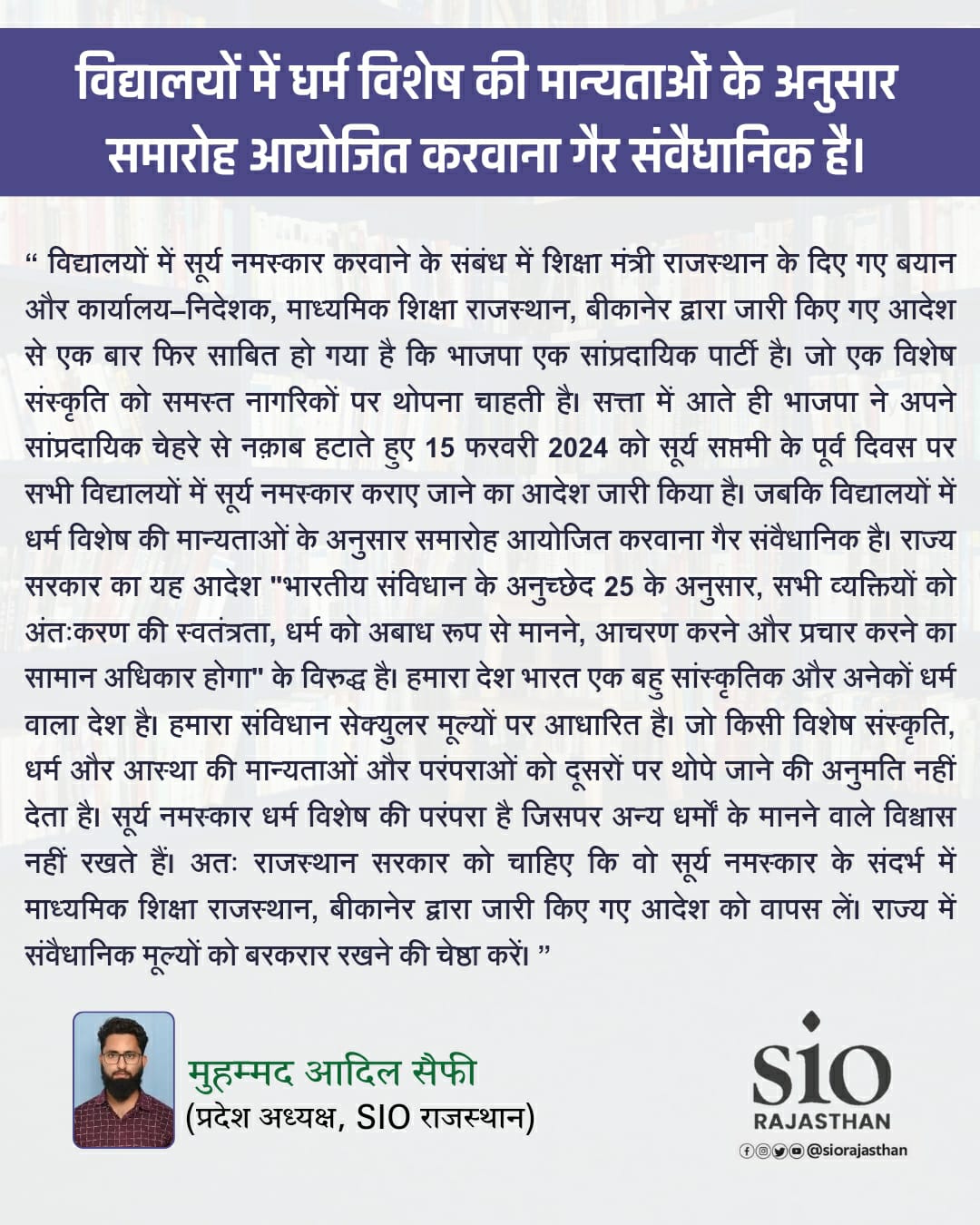– Raheem Khan
Jaipur, Feb. 13: The Students Islamic Organization of India (SIO) Rajasthan on Tuesday strongly criticized the Rajasthan government’s recent order, which mandates all schools to organize a “grand Surya Namaskar program” on February 15, the day before Surya Saptami.
SIO Rajasthan President Mohammad Adil Saifi said the order has ignited controversy in educational institutions, calling it “unconstitutional” and a violation of India’s secular values. Saifi argues that imposing a religious practice associated with a particular faith on students of diverse backgrounds goes against Article 25 of the Constitution, which guarantees freedom of conscience and religious practice.
 “Our country is a multicultural and multi-religious society,” Saifi said in a statement. “The Constitution upholds secular values, not imposing beliefs of one group on others. Surya Namaskar belongs to a particular religion, not shared by all. The government must revoke this order and uphold constitutional principles.”
“Our country is a multicultural and multi-religious society,” Saifi said in a statement. “The Constitution upholds secular values, not imposing beliefs of one group on others. Surya Namaskar belongs to a particular religion, not shared by all. The government must revoke this order and uphold constitutional principles.”
The order directs schools to seek the involvement of local philanthropists and social workers for the program, raising concerns about potential political or religious influences within the educational sphere. Additionally, critics point out that a similar order in 2015 faced backlash and was eventually withdrawn.
The Rajasthan government has yet to respond to the criticism. However, the SIO statement and the ensuing debate highlight the ongoing tensions in India regarding the balance between religious traditions and secularism in public institutions. While some view cultural celebrations as harmless, others perceive them as attempts to homogenize society and marginalize minority groups.
It remains unclear whether the government will budge on the order, but the controversy is likely to spark further debate and potentially legal challenges. This incident adds fuel to the fire of religious and cultural tensions in Rajasthan, prompting discussions about inclusivity and respecting diverse beliefs within the education system.




